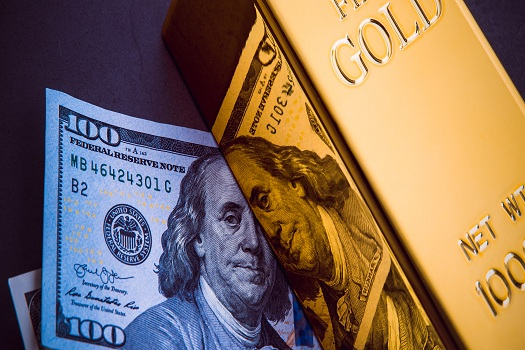Can My Gold Be Seized by the Federal Government?
There are some myths and misconceptions that still linger about gold in solid form, which is basically what bullion is. One of the lingering misconceptions is that the United States government can take your gold. Below, the precious metals experts from First National Bullion and Coin present a clearer picture of gold confiscation and what you need to know about whether or not this is really something you’ll need to worry about.
At One Time, the Answer Was Yes—Sort of
In 1933, President Roosevelt issued an executive order that required Americans to turn in their gold to stabilize the U.S. economy. There were exceptions for gold with special value and coins considered rare or unusual because of certain characteristics or qualities. However, even back then, the federal government didn’t actually confiscate or “take” much of the gold that was collected. Most of what was obtained was voluntarily turned in. Also, the U.S. government provided compensation for the gold turned in—albeit on the lower side of the market rate at the time.
Search & Seizure of Gold Rarely Happens
There’s also a lingering myth that the IRS went on the hunt for safe deposit boxes and other possible places where gold in solid form may have been stashed. In reality, there are no clearly documented incidents of widespread gold searches and seizures of this nature.
One of the few examples involves a man who, during the height of the Great Depression, tried to withdraw 5,000 ounces of gold from his local bank. Because this was such a big withdrawal, the bank had to report it to the federal government. Agents then went to the bank, although this wasn’t standard practice back then—and it’s not now, either.
Some Unsavory Dealers Spread False Myths
Some less than reputable precious metals dealers, firms, and websites tell customers that during a national crisis, the U.S. government can confiscate gold bullion. However, this isn’t actually true. There are no current federal laws or Treasury Department regulations that make clear references to the government’s legal authority to do this.
Later Actions Further Restored Gold Ownership to Americans
Even if there was a gold recall now, the 1933 executive order issued by President Roosevelt wouldn’t apply to new recalls. Furthermore, in 1974, President Gerald Ford repealed the 1933 executive order. At the same time, Congress officially restored Americans’ right to own gold. Also, Congress later took away the authority of the president to regulate transactions involving gold for the purpose of national emergencies.
You’ll Need to Report Gold Earnings for Tax Purposes
Today, the answer to “Can the U.S. government take your gold?” is “No” for most people. Granted, if there are some illegal activities involved, there may be exceptions. However, this doesn’t apply to most responsible gold bullion owners. Also, you’ll need to report any earnings you make from your gold for tax purposes.
If you’re considering buying gold, don’t let misconceptions guide your decision—seek advice from trustworthy professionals with years of expertise. No matter what type of precious metals they’re looking to buy or sell, from palladium bars to silver bullion or gold coins, San Diego residents trust the reputable dealers at First National Bullion and Coin. You can rely on our experienced professionals when you’re looking to add precious metals to your collection or investment portfolio. Call one of our precious metals experts today at 858-666-6570.
The statements made in this blog are opinions, and past performance is not indicative of future returns. Precious metals, like all investments, carry risk. Precious metals and coins may appreciate, depreciate, or stay the same in cash value depending on a variety of factors. First National Bullion does not guarantee, and its website and employees make no representation, that any metals for sale will appreciate sufficiently to earn the customers a profit. The decision to buy, sell, or borrow precious metals and which precious metals to purchase, borrow, or sell are made at the customer’s sole discretion.


